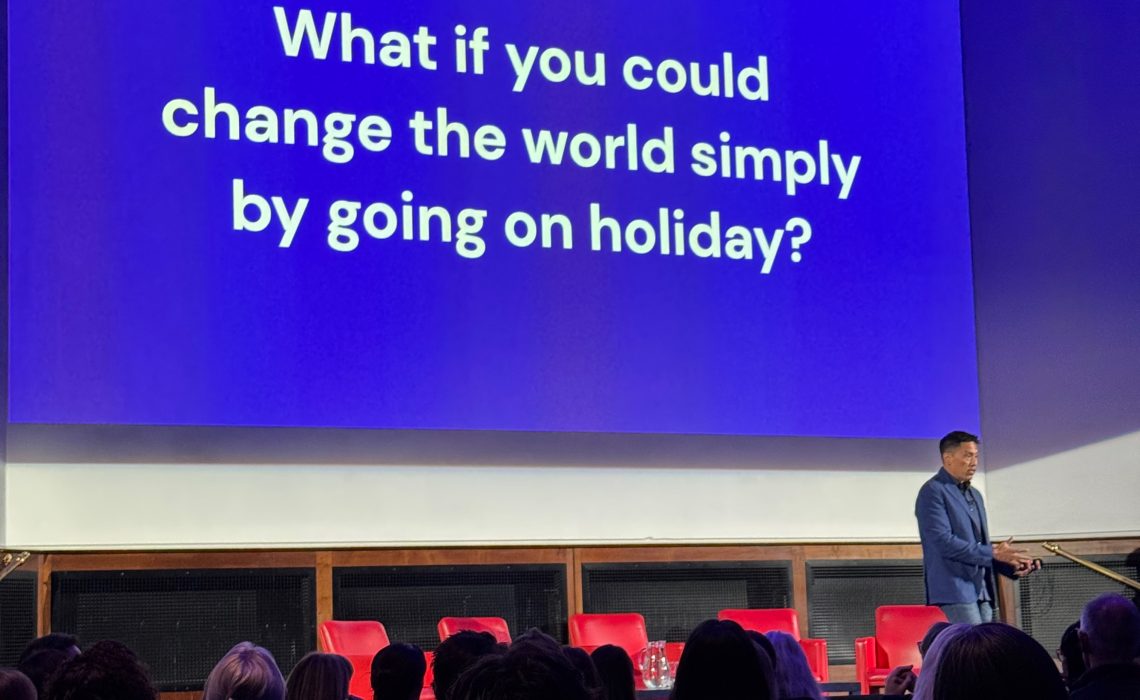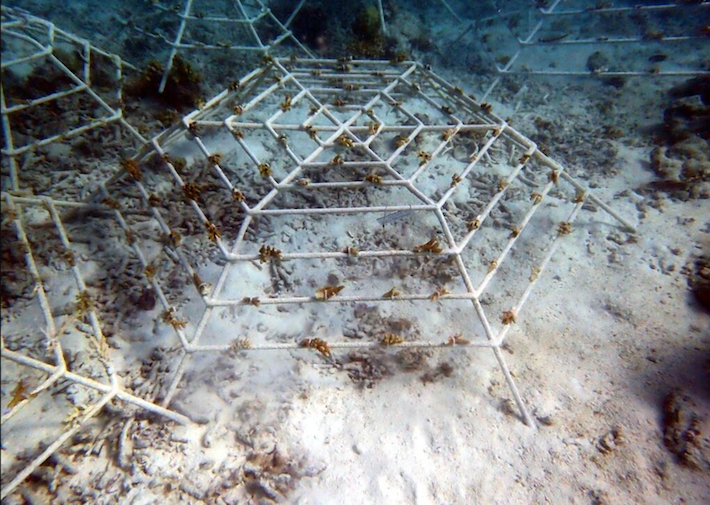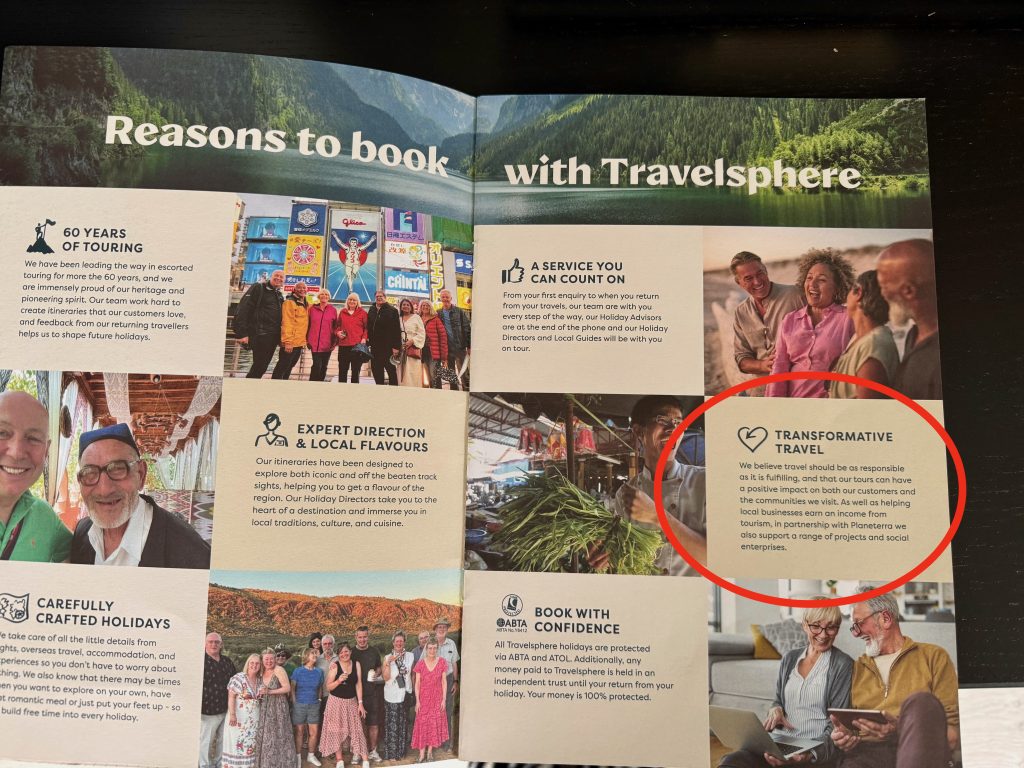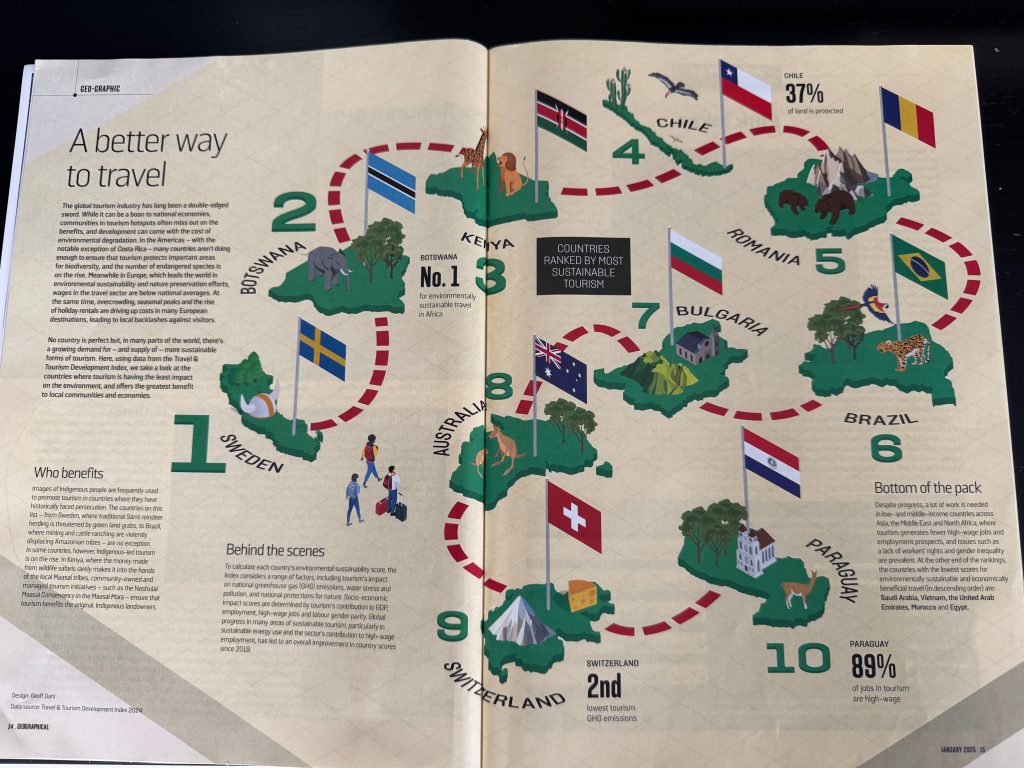
Our little corner of Chorleywood gathered together on a cold March evening, for a thoughtful discussion on something that touches all our lives: travel. With a focus on sustainability, we delved into the nitty-gritty of our local transport options and broadened our horizons to consider the impact of our holidays.
It was an uplifting discussion, with many different opinions and inputs. Here are our outcomes….
Keeping it Local: The Challenges and Small Wins
We kicked off by looking at our day-to-day journeys. Living where we do, we’re fortunate to have both the Metropolitan Line and the Chiltern mainline train taking us straight into Marylebone Station, a definite plus. However the familiar frustrations of weekend engineering works and holiday disruptions, seem to have a knack for popping up just when you need them most, often leaving you stuck reaching for the car keys. It’s a reminder that even good infrastructure needs consistent reliability.
Buses to and from Chorleywood, sadly, don’t offer a viable alternative for many. Let’s just say “infrequent” is putting it mildly. They often don’t even bother showing up to and from Chorleywood meaning they’re really not a reliable option without significant improvements. While Rickmansworth boasts a better bus network, the added travel time makes it less appealing for quick local trips.
E-Bikes and the Like
Then came the topic of bikes. The Chiltern hills, while beautiful, present a significant challenge for regular cycling. Even electric bikes, while offering assistance uphill, can be cumbersome and heavy, especially if you misjudge your timing at a pedestrian crossing! One thing is for sure, there is always a hill coming back home into Chorleywood.
A more concerning issue raised was the growing problem of e-bike thefts and anxieties around secure parking, particularly given the very low risk of battery fires – a point highlighted by the recent Luton e-car incident. It feels a bit inconsistent that we worry about parking e-bikes safely, yet electric vehicles park freely in car parks. This is certainly a limiting factor to being able to choose bikes over cars. Biking to work for most of us doesn’t seem an easy option.
What About Car-Sharing?
The lack of car-sharing schemes, Ubers, or Zipcar-style rentals in our area also came up. For those of us aiming to reduce car ownership, the absence of these flexible options makes it harder to manage without a second vehicle. Relying on traditional taxis can be more expensive and perhaps less environmentally friendly than a well-utilised ride-sharing service. It’s a clear indication that our local infrastructure needs to catch up with modern, sustainable transport solutions.
Despite these challenges, some resourceful neighbours shared their own initiatives. One couple had successfully shared a car with a neighbour, paying to borrow it for occasional use. This arrangement worked well for both parties, reducing the need for a second car and ensuring the neighbour’s vehicle wasn’t sitting idle. It sparked an interesting discussion about the potential for more informal, community-based sharing.
We also touched upon the exorbitant parking costs in London, especially during train strikes. Someone mentioned a scheme where you can rent parking space on private driveways, offering a more convenient and affordable alternative – JustPark and ParkOnMyDrive are examples . It’s these small, innovative solutions that offer a glimmer of hope, but we all agreed we need more of them in our area.
Our general consensus on local travel was that, while the train is a valuable asset, It just feels like the infrastructure isn’t there to make sustainable local travel easy. Cycling faces geographical and security hurdles, and until these are addressed, it won’t be a widespread option. Interestingly, walking is the preferred mode of transport for our group whenever feasible, with one neighbour even enjoying the increased walking in Rickmansworth during a temporary house move.
It highlights the simple truth that sometimes, the most sustainable option is right outside our front door!

Every Click Counts: Fueling a Greener Future, One Story at a Time. Our planet whispers a plea for change, every day. Every small step we take – from reusable bags to conscious consumption – ripples outwards, creating a wave of hope. Let’s rewrite the story of our planet, one click at a time. Join me in making a difference. I believe in the power of storytelling. By sharing inspiring environmental initiatives and practical tips, I aim to amplify the voices making a difference. Imagine a world where everyone is empowered to take action, one small change at a time. Together, we can create that reality. Your support is more than just a donation. By clicking the “Donate” button (top right corner), you become a partner in this mission. Your contribution fuels this platform, allowing me to share even more impactful stories and empower a global community.
Broadening Our Horizons: Sustainable Holiday Travel
Our conversation then shifted to the more complex topic of travelling for holidays abroad. It was interesting to note that many of us, perhaps due to years of work-related travel, feel less compelled to jet off overseas for leisure. However, opinions within the group varied.
Some acknowledged a sense of guilt associated with flying but accepted it as part of their lives, while others have consciously chosen to prioritise UK-based travel. But even UK travel tends to be car-heavy. For those who do venture further afield, train travel in Europe, was highlighted as a much more enjoyable and often reasonably priced alternative to the UK’s rail network. A few people had tried train travel in Europe – Italy, Spain, France, and especially Switzerland – and raved about how much better and family friendly it was with the train journey itself became part of the adventure!

We then explored the idea of giving back to the communities we visit as a way to offset the environmental impact of our travel. Examples like coral reef restoration projects in the Maldives that all guests there can contribute to by sponsoring a coral frame – you can read more about this in some of my earlier blogs here and here – its one of the coolest ways to ‘offset’ the negative impact of your travel. And you don’t need to be a guest to sponsor a coral frame, you could do this remotely as a ‘payback’ for your travel – check out Reefscapers for more info.

I’d just been to a ‘Travelsphere in partnership with the Royal Geographical Society (RGS)’ talk at RGS and we discussed the pro’s and cons of this type of ‘transformative’ travel. Where it’s more responsible, helping the local communities and businesses in the regions they run tours to, meaning a more positive impact than your average every day holiday. Travelsphere shared some of the projects they had instigated, such as weaving initiatives supporting women in Nepal and on a small island in Belize, providing young adolescents bikes in exchange for their commitment to their schooling – all of this resonated with the group. However, a note of caution was raised about ensuring our efforts genuinely benefit the local environment and community and don’t inadvertently cause harm.

I also shared the RGS chart on sustainable travel destinations, from one of their recent magazines, prompting a deeper discussion about the multifaceted nature of sustainability, encompassing economic growth and community well-being alongside environmental protection.
The example of Costa Rica was particularly insightful. Despite past deforestation, the government recognised the value of its rainforests as a tourist attraction and implemented policies to manage tourism sustainably. This has led to reforestation efforts and ensures that tourism revenue benefits local communities, providing access to basic necessities like electricity, clean water, and sanitation. While living conditions might still be basic in some areas, the fundamental quality of life has improved. This success story stands in stark contrast to neighbouring Nicaragua, highlighting the crucial role of government leadership.
Closer to home, we celebrated local initiatives like the Dawn Chorus walks organised by The Grove, a nearby five star hotel and estate. One neighbour shared their wonderful experience, highlighting the value of these small-scale efforts to connect with nature. The gift of forestry land to the Wildlife Trust by The Grove further exemplifies the positive impact of local stewardship in preserving biodiversity for everyone to enjoy. These are the unsung heroes, the small groups and corporations making a real difference.
On the corporate front, one in our group shared inspiring news about the company she works for, it’s a medical lab. They recently received a “My Green Lab” award for their impressive work in recycling and reusing challenging materials within the medical environment. Even more relevant to our travel discussion, they have implemented a policy of consolidating international travel, holding just two or three face-to-face meetings annually to minimise individual trips. This proactive approach to reducing their carbon footprint is commendable and something we rarely see publicly. Their commitment extends to everyday practices too, like collecting coffee grounds for gardening and avoiding single-use plastics.
Our conversation concluded with the understanding that while government-led initiatives, like the example of Costa Rica, are crucial for large-scale change, there is also a significant amount of impactful work happening at individual and corporate levels. Despite the overwhelming feeling that climate change isn’t being tackled effectively, our discussion revealed a multitude of people and organisations genuinely concerned and taking concrete steps towards a more sustainable future.
Conclusion
It was a really uplifting discussion. While some things definitely need government action, like the Costa Rica example, it’s amazing to see how much individuals and companies are doing on their own to tackle climate change. We might feel frustrated sometimes that more isn’t happening on a bigger scale, but these local initiatives and thoughtful approaches to travel really do make a difference.
We came away with a shared commitment to making more conscious choices about how we travel. I believe it’s these conversations and collective efforts, however small, that build a stronger, more sustainable community.
